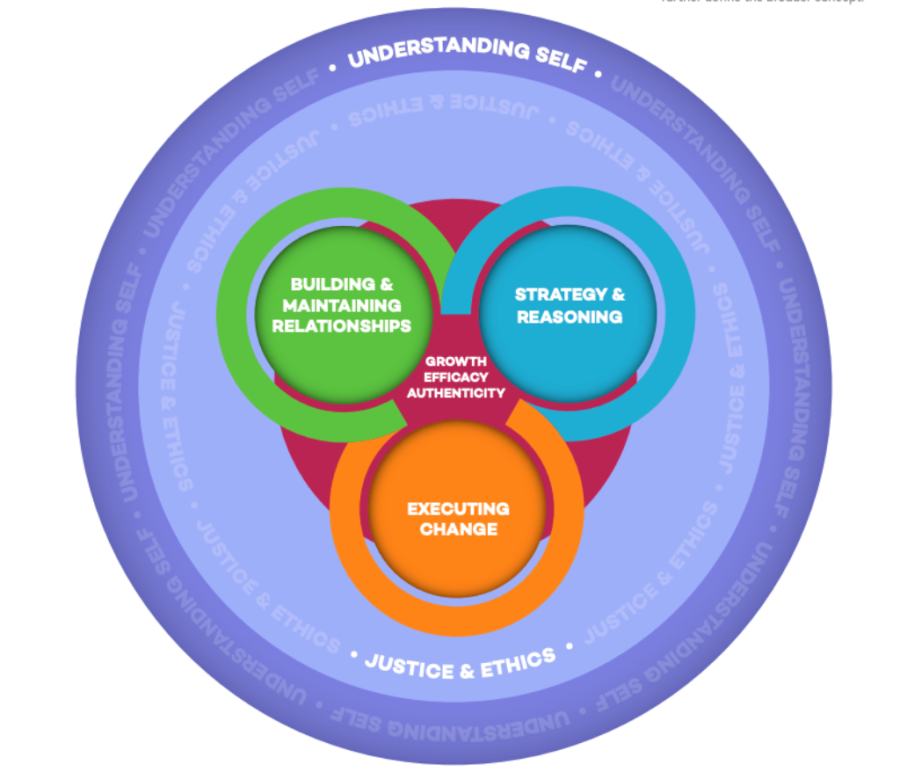The other day, I was browsing the chip aisle in the grocery store while my mom had gone to peruse the shelves for a loaf of bread. No one else was around me. I looked to my left, and a man appeared from the end of the closest aisle. He wasn’t wearing a mask, and he quickly walked inside of my six-foot bubble to grab a pack of cookies. I’m sure the alarm I was feeling showed plainly on my face, because the man looked at me quizzically and cheerfully said hello. Without thinking too much, I turned on my heel and walked towards the pharmacy, where I knew there would be other people, without giving the man so much as a smile.
As soon as I was out of sight of the man, a wave of guilt hit me. How rude of me to walk away without a smile or a hello! I just stalked away from him, and he was only getting cookies. How could I?
Then I stopped. That man’s lack of a mask and social distancing had made me uncomfortable. Why should I have given him a positive reaction to his behavior? Why did I feel like I needed to give him a positive reaction?
The idea that women owe nicety to the world at large stems from a societal expectation that we exist to give ourselves–physically and mentally–to other people in our lives. We are expected to play supporting roles and do whatever we can to lift up everyone else around us. While, thankfully, our culture has come a long way, women have historically been expected to give up their lives and careers in order to give their full attention to their family. This expectation and the expectation that women smile stem from the same patriarchal norms upon which our society is built. Unfortunately, the expectation that women give their meek presence to the world can start at school. I don’t know how many times I’ve been told in class to “just be nice” to people, or to just “give people a smile…it doesn’t cost anything!” We need to stop creating an educational system and society that tells women that we need to be nice to everyone we meet, all the time.
The fact is, for a woman, a smile can invite a whole lot of unwanted attention—and even compromise our safety. How can we be encouraged to be unconditionally kind when serial killers, criminals, and violent people take advantage of us? And when our society is complicit to the disrespect of women—from abusers like Harvey Weinstein (no relation to author) or Jeffery Epstein to the rape jokes and shaming women online—why is it our job to please? When men aren’t taught to respect women to the same extent that women are expected to comply and “be nice,” how can we possibly operate under the assumption that the average stranger will?
Don’t get me wrong—I’m not against smiling itself. As anyone who knows me can attest, it’s hard to catch me without a huge grin on my face, and generally, I love being happy. However, we, as a society, need to realize that a smile, our dignity, and our bodies, are never something that we “owe” to other people. Let’s stop teaching women to default to grinning, especially when we don’t hold the same standard for men.
Despite the wonderful intentions of those teachers and influences who have taught me to smile when in doubt, (I mean, who wouldn’t want to teach someone to brighten someone else’s day?), our society’s obsession with women’s social compliance capitalizes on our willingness to extend our physical and emotional boundaries in order to avoid rejection. Refusing the social standard of the smile can be truly empowering, but from my own experiences, this assertion of autonomy becomes twisted into a “failure” or an expression of cruelty or heartlessness. This falsehood starts to wriggle its way under your skin, and pretty soon, you feel awfully guilty when we don’t sacrifice your autonomy. This guilt is how society coerces women into submission.
It’s not that we should stop telling kids to be nice—kindness is a beautiful thing that should be spread as much as possible—but we should stop using rhetoric that makes it sound like being kind is mandatory in all situations. Instead, by emphasizing the inherent dignity of women and respecting our autonomy, as well as raising both our sons and daughters to be powerful, empathetic, assertive, and self-determining, maybe we can finally level the scale of inequality and ensure that a smile is always a gift to those who deserve them.
Note: Noel Wang served as a contributing writer to this article.








